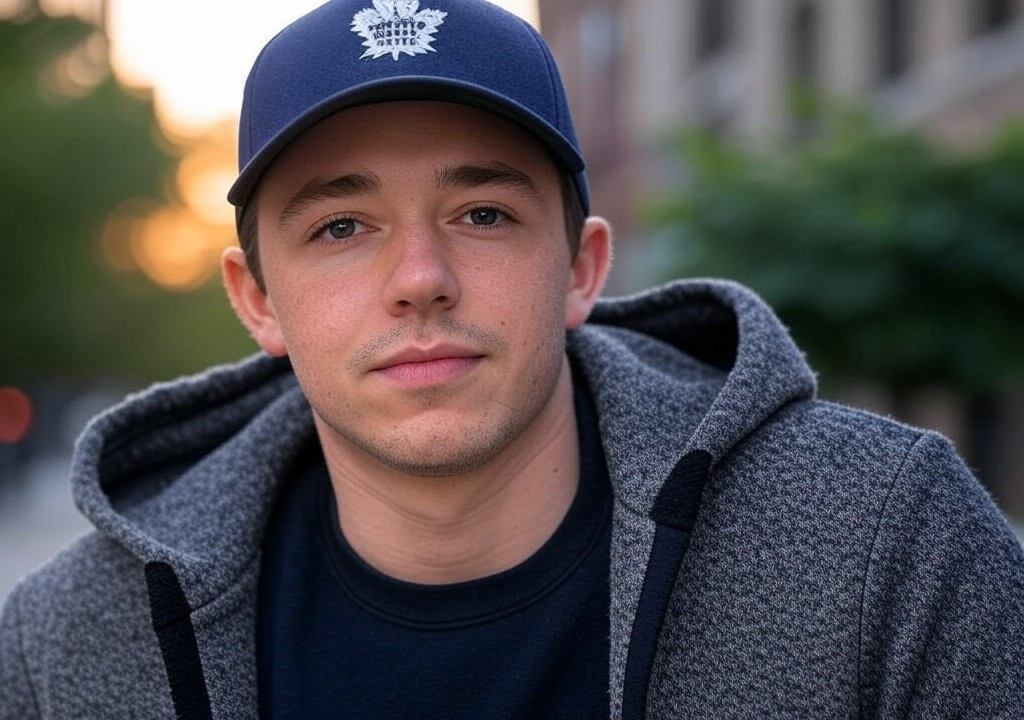I still remember my friend Lisa’s face as I told her I was officially making the leap to writing full-time. It was somewhere between “I believe in you” and “Are you out of your mind?” To be fair, Toronto rents have a way of making even the most steadfast dreams feel like risky business. But here’s the thing: I’ve never been one to resist what pulls me. And if there’s one thing I’ve learned growing up surrounded by a whirl of diverse cultures, influences, and connection points, it’s that life is too short not to follow where your compass leads—even if it’s into the murky world of love and relationships (and into writing about them).
So why did I, a university kid with a collection of Michael Ondaatje novels and a knack for essays on gentrification, pursue writing about something as universal and deeply personal as relationships? Let’s just say, it feels a bit like my inevitable meet-cute with purpose: unpredictable, a little messy, but surprisingly right.
The “Aha!” Moment (With a Side of Romance)
Every “why” starts with a moment. Mine? Picture this: I’m standing at a corner café on a random Tuesday in Toronto’s Kensington Market, sipping overpriced chai and clutching my notebook as the café buzzes like a crowded dinner table. I overhear two people arguing—not about politics or pop culture—but whether they should move in together. Him: adamant he needs a three-month timeline. Her: insisting the timeline is less important than the feeling. I sat there, thinking, This is better than any Netflix drama.
That conversation—and the way it hung in the air around me—reminded me how universal our messy, little attempts at love are. We’re all fumbling in our ways, shaping and reshaping what relationships should look like, often while untangling our own internal storylines. And yet, it’s through that fumbling that the most vital lessons about being human emerge.
Writing about relationships lets me stand in the middle of that café every day—metaphorically speaking—connecting the dots between our most vulnerable moments and what they say about who we are. Because love, despite what Instagram captions tersely declare, isn’t just something we "fall into." It's something we work on, trip over, and sometimes hilariously fail at. (I won’t go into my own “disaster picnic date” involving rain, bagged wine, and surprise bee allergies, but you get the picture.)
Growing Up in a Multicultural Playground
If ever there was a city designed to shape someone curious about connection, it’s Toronto. Growing up in Riverdale, my weekends bounced between food truck festivals filled with the mingling aromas of jerk chicken and shawarma, and family hockey outings where strangers would get collectively emotional over a Leafs loss (again). That diversity of experience—the sheer plurality of voices and stories—taught me early that no two people see the world (or love) exactly the same way.
One of my favorite memories is of my mom and her best friend, Ming, debating the concept of arranged relationships over pho. My mom spoke warmly about “falling in love” as a kind of universal dream, while Ming held firm to the idea that love could be cultivated like a well-tended garden, even if it didn’t start with fireworks. At the time, I was (uncharacteristically) silent, but that conversation planted the seed for what would eventually become one of my driving ideas: love, in all its forms, has both spontaneity and structure—it’s about finding that balance.
Now, that’s what I aim to do through writing: tease apart those nuances, laugh at the idiosyncrasies, and celebrate the universality of it all.
Writing as a Relationship in Itself
They say “write what you know,” but I’ve found it’s just as important to write what you want to figure out. For me, that’s been relationships—romantic, platonic, familial, and everything in between. Writing about love makes you reflect on your own history in uncomfortable but rewarding ways. It forces you to confront your blind spots: Why did you say that to your partner during that fight? Why didn’t you stand up for yourself in that situationship? Why do you avoid texting back the second someone seems serious about you?
Each article I write feels like peeling back a layer of expectations—society’s, my own, the ones my parents subtly passed on over dinners where second helpings were more common than “I love yous.” It’s strangely therapeutic, like stitching together the narratives that make us who we are and finding the tension (and release) within them.
Writing this kind of content has also made me a better listener—with friends, dates, and even myself. (Pro tip: sometimes the answer to "Why didn’t they message back?" is simply “They’re bad at communicating.” Not everything deserves hours of emotional archaeology.)
From Flirtation to Familiarity—The Threads of Storytelling
Relationships—and writing about them—are, at their core, about storytelling. It’s everything from the first flirting text to the final late-night talk where you decide, together, what your next chapter looks like. My job, as I see it, is to take those universal threads and weave them into something relatable, something that says, “You’re not alone in this.”
Here’s my rulebook for writing (and living) love stories authentically:
- Get Specific (but Universal): If you’re writing about heartbreak, it’s not enough to say “it hurts.” Show me how it felt when you came home to their empty coffee mug on the counter or when their name flashed on your phone at 2 am (for an UberEats promo, not them).
- Don’t Be Afraid of Humor: Love isn’t all candlelit dates and deep gazes. Sometimes it’s showing up to their doorstep with the wrong coffee order or accidentally snoring during a serious talk. Romance is messy; that’s why it’s relatable.
- Balance the Personal with the Big Picture: Readers want to know they’re part of something bigger—whether it’s the shifting dating landscape, changing relationship norms, or collective fears about commitment. Make it bigger than you.
Why It Matters
So why did I choose this path? Because I think relationships are the closest thing we have to urban planning for the heart. We build (sometimes awkwardly), we renovate, we tear things down only to construct better foundations. My background in arts, human sociology, and writing about gentrification has shown me that whether you’re arguing with your partner over paint swatches or figuring out what “we” means in a modern relationship, it all comes back to learning how to share and shape spaces—emotional ones this time.
And just like living in a city means embracing its imperfections, being in love means learning to navigate someone else’s quirks and potholes. It’s all about connection, and I think helping people create meaningful ones is about the best job I could hope for.
In the end, I didn’t just choose this path for the stories—it chose me, through the city I grew up in, the conversations I overheard at cafés, the lessons I learned when I didn’t text back, and the joy of turning messy emotions into something that connects us. And if I can help someone out there feel a bit more seen in their own love life? Well, that’s worth the journey.




















